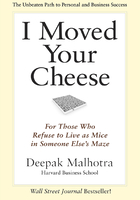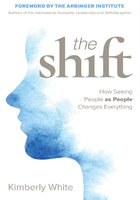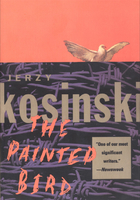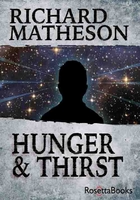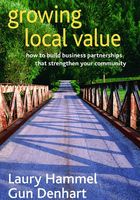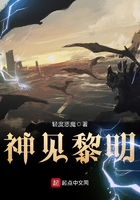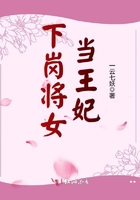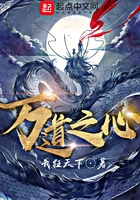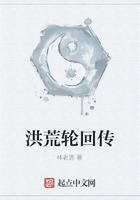Everyone knows about the impact on William Golding's fiction of his career as a schoolmaster. Lord of the Flies, Golding's first published novel and one of the most famous books of the twentieth century, made deeply unsettling use of its author's close observation of schoolboys. His years teaching at Bishop Wordsworth's School in Salisbury clearly made him feel how flimsy were the propriety and conformity that it expected from its pupils. He had seen the potential savagery of boyish games and boyish rivalries. But his work as a teacher influenced his fiction in another way. Bishop Wordsworth's was – and still is – located within the medieval walls of Salisbury's Cathedral Close. For more than fifteen years Golding worked in the shadow of the Cathedral itself – or rather, of its tower and its spire. Close up, this spire, the highest in Britain at 404 feet, is simply miraculous. This soaring remnant of an age of faith was a wonder that he saw every day.
Between 1945 and 1951 the top thirty feet of the spire were rebuilt. It would have been like seeing the final stages of the original medieval construction. Perhaps this vision gave Golding the idea for this novel, written in fits and starts between February 1962 and November 1963, which tells the story of the erection of a tower and spire on an English cathedral. The cathedral in The Spire is Salisbury Cathedral, and it is not. Neither Golding's cathedral, nor the town that huddles next to it, is ever named. The novelist wants to give no hint of historical tourism and no encouragement to check his fiction against the facts. As always, Golding intends his particular drama to be universal. That drama is rooted in the imagination of one character, the Dean of the cathedral, the man who relentlessly drives the project to add the spire to a church that has already been completed. Dean Jocelin (we never find out his other name) is driven by what he believes to be God's will. He thinks that he has an angel at his back, urging him on.
God compels him to overcome the doubts of the master builder, Roger Mason, who tells him that his design is architecturally impossible. Halfway through the construction of the tower, Mason shows Jocelin what lies underneath the building. The Dean looks into the pit that has been dug under the crossways of the cathedral and sees not solid earth or rock but a bubbling and seething darkness. The whole building floats on mud and brushwood. The impossibility of the erection has its roots in reality. Golding apparently took little interest in architectural research for the novel, but he knew Salisbury Cathedral intimately. Like the cathedral in the book, it 'floated' on the marshy ground on which it was built. He knew that the spire's weight caused its supporting pillars visibly to bend, and that it might well have eventually collapsed under its own mass if Sir Christopher Wren had not added reinforcing beams in the seventeenth century. The cathedral in The Spire is likewise a near-impossible building. Jocelin realises this. He must harness Roger Mason's engineering know-how, goading him to develop the idea of the vast metal ring that will prevent the tower bursting outwards. Yet the spire is also beyond reason – a glorification of God that leaves the earthly behind.
Golding's novel inhabits the consciousness of the man who believes that God has chosen him to get the spire built. Its brilliance is in its fictional method. When Golding wrote The Spire the historical novel had none of the literary respectability that it has attained in our own age. In early plans and drafts, the novelist fretted over the way to tell his story. He first imagined it being set partly in modern times and indeed having a modern narrator; in the end he gave the novel entirely to his protagonist. Only occasionally does the narrative actually speak in the first person, in the direct voice of Jocelin's thoughts. Yet we are always in his mind, gripped by 'his will, his blazing will', tormented by his own most familiar demon. Mostly the narration is in the third person, but warped by this man's obsession. It is also dazzled by his hopes as he watches the impossible building grow. When one talks of this novel's brilliance one is not being metaphorical: rarely have the effects of light been more deftly handled, more concretely seen. The book's first sentence is an explosion of sunlight through glass, and light is Jocelin's holy pleasure. When the sun catches shaped stone, 'run into dazzles and haloes that lay round every object', we are made to feel the wonder of it. God's daylight is everything.
Jocelin is a man tortured not by doubt, but by faith. Golding makes us believe in the mind of a medieval man not by any verbal antiquarianism, but by an absolute immersion in his vision of things. In a memorable confrontation with Mason, high on the rising scaffolding, Jocelin refuses to let him escape their God-commanded task. Comparably, the reader is not allowed to escape. Jocelin may be deluded, irrational, even crazed, but there is nowhere in the novel to go for any alternative point of view. The other leading characters are made to appear strange or uncommunicative, for only one way of seeing the world can triumph. The narrative imitates the imperiousness of its protagonist. He is a visionary. He sees how the tower and spire will change the very landscape, 'altering it, dominating it, enforcing a pattern that reached wherever the tower could be seen, by sheer force of its being there'. Golding's supreme care as a novelist is to allow himself neither admiration nor condescension for this vision. Jocelin's religious fervour takes possession of the novel and the novelist must allow this.
The book is also true to what Jocelin fails to understand. At its heart is a terrible deed that he witnesses but hardly comprehends, one of those moments of primal violence that we often find in Golding's fiction. Only slowly does the horror of it become explicit to him, and Golding makes the narrative and therefore the reader enact this slow access of understanding. Why can he not understand? His mind is clouded by the fear and disgust inspired by the Godless attitudes of many of those who labour on the building. Today's visitors to any of Britain's great medieval cathedrals might be tempted to imagine the devout faith of the men who made them; Golding has thought differently. The superstitions of the labourers seem to owe nothing to the Dean's Christianity. Up on the tower on Midsummer's Night Jocelin looks out over the surrounding hills and sees the bale fires 'lighted by the devilworshippers'. The men and women who live around him, those for whom the cathedral is built, subscribe to the rituals of a pagan year. They are with the Devil.
Jocelin watches from God's tower. He is a man of God, certainly, raised above those who labour below him, but he is not a godly man. He observes with jealous insight the two women who circle around Mason, his wife Rachel and, much less obviously, Goody Pangall, the red-haired wife of the cathedral's caretaker. We might say that Jocelin lusts after Goody, except that we know only what he can admit to himself, 'lost in his private storm'. The psychology – the holy man harried by unholy desires – is easily explained, but its lived reality in the sentences that mimic Jocelin's thoughts is altogether stranger and more singular. His denial of his desires makes them dark to us as well as to him.
Jocelin fights his demons, fixed on his one goal. As the tower grows higher, we are made to feel the stresses of all that stone and glass and iron. As more and more weight is added, the building's central pillars begin to 'sing'. This is no figure of speech: the incredible strains and pressures within the construction produce some kind of resonance effect, 'the threat and the marvel of the singing pillars'. The singing is also in Jocelin's head. Golding manages to give us a physical sense of the almost impossible engineering of this thing through his representation of the protagonist's thoughts. Sentences stretch and almost buckle to accommodate his will. Readers will find Golding's narrative style occasionally demanding, but it is with this purpose: to make Jocelin's mind shape all that we are told, to make us feel the pressure of his fevered aspiration. Perhaps this extraordinary novel could only have been written by a man who himself felt viscerally the dark powers of religious feeling. Like the spire itself, it is a testimony to the irresistible power of the imagination.

